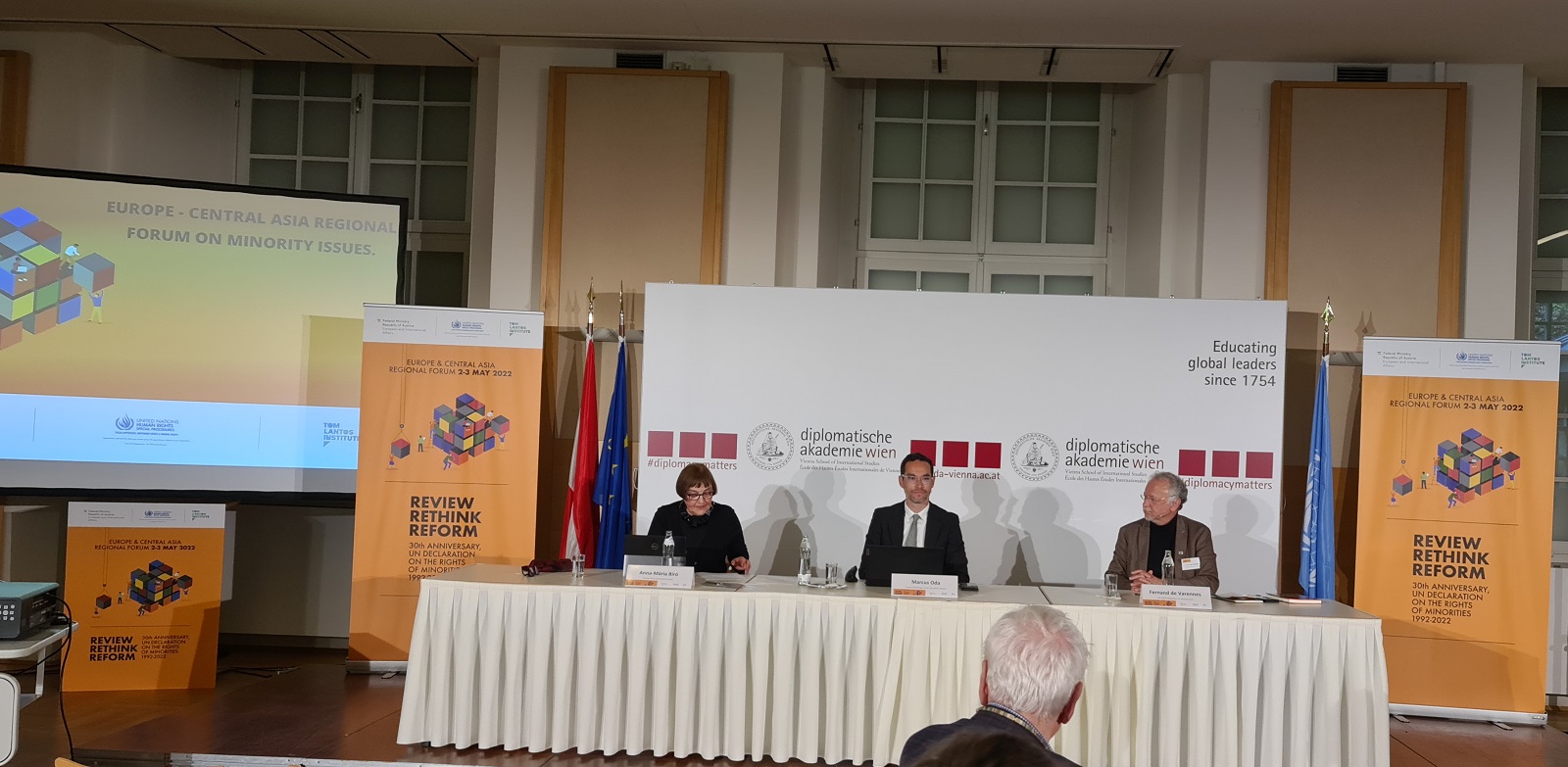“The Europe-Central Asia Regional Forum will provide regional insights, which will feed into the thematic work of the Special Rapporteur for his report to the 52nd session of the UN Human Rights Council in March 2023. Furthermore, discussions will inform the work and recommendations of the 15th session of the Forum on Minority Issues, which will take place in Geneva in December 2022.” Tom Lantos Institute
On 2 May 2022, Mr. Zandberg made a statement about the Cham issue at the second thematic session of the European-Central Asia Regional Forum.
Distinguished guests,
I wish to explain the human rights situation of the Cham-Albanian community.
The Cham are an indigenous people with a Cham-Albanian language and culture who lived for many centuries in the historical region they called Chameria, which is now North-western Greece. The area was part of the Ottoman Empire until 1913 when it became part of Greece, despite the fact that a large part of the population identified themselves as Cham-Albanian.
The Greek government subsequently implemented a policy of assimilation of the Orthodox Cham-Albanians and intimidation and expulsion of the Islamic Cham-Albanians. For example, in the Greek-Turkish population exchange of 1923, many Cham were forcibly moved to Turkey since the Greek government claimed the Cham-Albanians were in fact Turkish. Furthermore, in 1944, during World War Two, almost the entire Cham-Albanian population fled across the Greek border to Albania to escape the war. The Cham-Albanians who were forced out to Turkey and Albania were stripped of their citizenship, and their land, houses and other possesions were seized and nationalised through several laws in 1947, 1953 and 1959. The Cham-Albanians have tried to reclaim their rights for decades and the Cham issue remains an open wound in the Balkans up until this day.
The Cham issue revolves around the return of citizenship, land and other possessions that were illegitimately taken away from the Cham-Albanian people. The Cham issue is also about the recognition of the Cham-Albanians as a distinct people who are entitled to minority rights. Unfortunately, Greece has not ratified the treaties of the Council of Europe that pertain to the protection of national minorities, which means the Cham-Albanians are unable to claim minority rights through these means and, for example, the Albanian language is completely absent from public services and education.
Over the years the Cham issue has occasionnaly flared up in international politics, but this attention was due to either Greece, Albania or the EU using it for their own political ends without having the best interests of the Cham-Albanian people in mind. The small Cham-Albanian community has been squeezed by the big powers in the region for centuries. We hope that the United Nations could play a role in ending this geopolitical squeeze and place the emphasis where it belongs, namely, the rights of a minority to get peace and justice.
Recommendation:
For the United Nations to become the driver for Minority Rights for the Cham-Albanian community by setting up reconciliatory instruments in the region and promoting the implementation of the Minority Rights declaration of 1992.
Thank you,
Jeroen Zandberg
